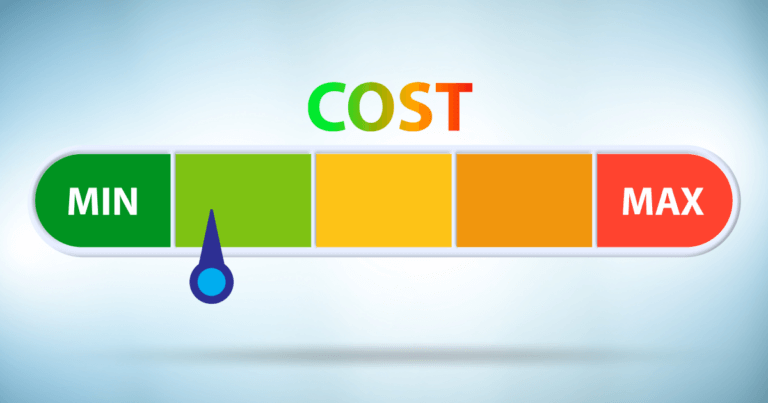The adoption of public cloud services has transformed the way companies manage their IT infrastructure. Computing resources are no longer fixed upfront investments, it is an everyday operational expense. Enterprise IT infrastructure has become a more dynamic and complex environment, where users can spin up new cloud resources in a matter of clicks.
What’s more, one can choose from a wide range of instances, storage types, and payment mechanisms, each designed to suit different use cases and levels of resource consumption. Along with cloud advantages comes new challenges of keeping cloud cost under control.
Cost monitoring and optimization tools within cloud management platforms can bring you the visibility you need into your cloud costs and utilization. The right toolset can help you keep your monthly cloud bills in check and reduce your management overhead.
How Automated Provisioning Tools Help Cut Cost on Cloud Bill?
The simple answer is by using cloud provisioning tools. Cloud with DevOps aims to automate as many tasks as possible. Even, both stand for delivering computing capacity on-demand without manual intervention. And to do it, DevOps also provides a number of automated provisioning tools or cloud provisioning software that works well with cloud management platforms while fostering cultural and process shifts. There are several enabling technologies available that help to achieve the desired computing power under the desired budget.
To develop better understanding about the enabling cloud provisioning tools, we have divided them into three categories:
- Cloud Computing
- Monitoring Tools
- Deployment/Synchronization
Let’s understand all three categories and different automated provisioning tools used for better cost optimization and to achieve greater efficiency, flexibility and availability.
Cloud Computing
1. AWS CloudFormation
AWS CloudFormation helps you to manage and secure all things related to the AWS cloud. The tool provides an easy way to model a collection of required AWS and third-party resources in YAML or JSON, provision them quickly, and manage efficiently by treating them as infrastructure as code. One of the best advantages of using AWS CloudFoundation as a cloud provisioning tool is it provides management of cross-account and cross-region.
2. Microsoft Azure Automation
Azure Automation helps you add business value by providing a cloud-based automation and configuration service applicable across Azure and non-Azure environments. This provisioning tool helps you automate processes, update management and configuration features that mitigate errors and cut the time required for infrastructure deployment. Best of all, Microsoft Azure Automation provides heterogenous deployments for Windows as well as for other operating systems such as Linux.
3. Google Cloud Deployment Manager
Google cloud deployment manager is your best bet if you are planning to build cloud infrastructure with Google. The cloud deployment manager by Google allows you to automate the configuration and deployment of cloud with repeatable deployments and template-driven configurations. Google’s cloud provisioning tool for cloud automation comes up with all the required tools such as CLIs, GUIs and APIs that allows managing all phases of your infrastructure’s configuration and management, from resource creation to deletion.
4. VMware vCenter Configuration Manager
VMware vCenter Configuration manager helps you provision servers for both physical and virtual IT systems and applications. The tools provided complete control to you to configure and maintain your VMware cloud environments (running on vendors like AWS and RackSpace) while meeting your operational, security, and compliance requirements. Additionally, it provides a central location to control configuration of your VMware-based infrastructure, whether it’s running on Windows, Linux, or Unix operating systems.
Want to know about our DevOps Consulting services?
Monitoring Tools
5. AWS CloudWatch
AWS CloudWatch is one of the best cloud provisioning tools available. It provides a comprehensive monitoring of provisioned compute stack such as apps, infrastructure and services and makes use of alarms, logs, and events data to take automated actions and reduce MTTR. The tool is dedicated to help customers so that they can focus on building applications and add business value while helping them to stay away from heavy lifting jobs such as freeing up resource allocation.
6. Microsoft Cloud Monitoring
Azure Monitor helps you maximize the availability and performance of your applications and services. It delivers a comprehensive solution for collecting, analyzing, and acting on telemetry from your cloud and on-premises environments. This information helps you understand how your applications are performing and proactively identify issues affecting them and the resources they depend on. Collect data from monitored resources using Azure Monitor Metrics.
Deployment/Synchronization
7. Kubernetes
Kubernetes is one of the best container orchestration tools and is automating deployment, scaling, and management of container applications easily. As a cloud provisioning software, Kubernetes is supported by most of the tech giants. Users can easily deploy and run applications on microservice architecture in any cloud environment.
8. Terraform
Terraform is a cloud-agnostic infrastructure provisioning tool. It supports all public and private cloud infrastructure provisioning (Networks, servers, managed services, firewall, etc.). Terraform allows you to automatically configure high-level cloud resources through extensive graphing. It requires secondary tools like Chef or Puppet to automate configuration management on those high-level resources.
9. Ansible
Ansible is agentless configuration management as well as an orchestration tool. In Ansible, the configuration modules are called “Playbooks” that make it easy to write automation, configuration, and orchestration tasks. Playbooks are written in YAML format, and it is relatively easy to write compared to other configuration management tools. As a cloud provisioning tool, Ansible also supports dynamic inventory where it can fetch the server details dynamically through API calls.
10. Chef
Chef is an open-source infrastructure configuration tool focusing on compliance management and reducing manual and repetitive infrastructure management tasks. It is developed on Ruby DSL language, Chef is used by DevOps teams for deploying and managing both on-prem and cloud servers and applications.
11. CFEngine
CFEngine is one of the best tools to automate infrastructure, security and compliance. It eliminates manual tasks from enterprise IT infrastructure such as patch management, configurations, system provisioning and many others and freeing up time to focus on more important business priorities. Regardless of scale and complexity, CFEngine prevents configuration drift through frequent system checks and automating remediation.
12. Puppet
Puppet is yet another ruby-based configuration management tool that is designed keeping system administrators in mind. It helps DevOps team model, configure, and enforce required infrastructure configurations in an effortless manner. Puppet is a best choice for use-cases where deployment and configuration help is required for all cloud variants on a large scale. It is the best tool available for computing, storage as well as networking resource handling.
13. SaltStack
Saltstack is a python based open configuration management tool. Unlike chef and puppet, Saltstack supports remote execution of commands. The compilation of code and configuration is very fast in Saltstack that makes it a right tool to use to manage all aspects of cloud infrastructure ranging from data center automation, server provisioning, cloud orchestration, configuration management, etc.
14. Foreman
An end-to-end lifecycle management, Foreman helps in provisioning cloud instances on all cloud variants. With Foreman, system admins gain the power of easily automating tasks, deploying apps, and managing servers, both physical and virtual.
Conclusion
While organizations are becoming increasingly fond of the concept of automated cloud provisioning tools, these software alone does not serve the entire purpose of automation. It requires resources with in-depth knowledge about the tools and their uses. These tools can offer a lot and only a skilled resource can help you make the most of it.




